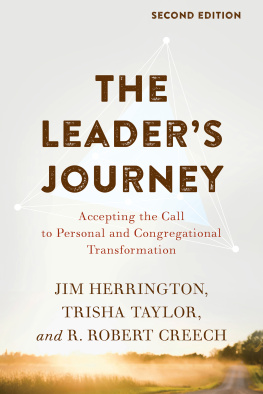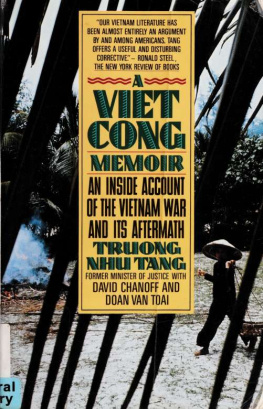A poignant, personal account by an Army district adviser who discovered the Vietcong to be a formidable opponent.
The New York Times

A Presidio Press Book
Published by The Random House Publishing Group
Copyright 1982 by Presidio Press, a division of Random House, Inc.
All rights reserved.
Published in the United States by Presidio Press, an imprint of The Random House Publishing Group, a division of Random House, Inc., New York, and simultaneously in Canada by Random House of Canada Limited, Toronto.
Originally published in 1982 with the title Silence Was a Weapon by Presidio Press.
Presidio Press and colophon are trademarks of Random House, Inc.
www.presidiopress.com
eISBN: 978-0-307-82380-9
v3.1
Contents
Preface
Americans tend to approach problems with a confidence and self-assurance that one might expect of a people whose ancestors turned the untamed wilderness of North America into a global power in the brief span of two hundred years. By the time President John F. Kennedy entered our lives, many of us had come to believe that our nation was virtually omnipotent. And so, when the new president announced that the United States would put a man on the moon within the decade, we thrilled to his challenge and knew that American drive and ingenuity would somehow make good his pledge. And when Kennedy eloquently put the world on notice that the United States would bear any burden, meet any hardship, support any friend, oppose any foe to assure the survival and the success of liberty, few young people doubted that we would do just that. Swept along on a wave of idealism, Americans of all ages joined the Peace Corps. Others volunteered for the elite U.S. Army Special Forcesthe Green Beretswhose motto, De Oppresso Liber, To Free from Oppression, symbolized the challenge of the sixties. Before the young presidents assassination, he committed the Army and the Green Berets to an increased role in the defense of beleaguered South Vietnam. The United States would protect the freedom of the Vietnamese people and disprove Chairman Maos oft-quoted maxim that political power flows from the barrel of a gun.
Ten years later, the final contingent of a 543,000-man American expeditionary force withdrew from Vietnam, having lost more than 50,000 men killed in vain pursuit of an elusive victory over the Vietcong insurgents and their North Vietnamese sponsors. Americans breathed a collective sigh of relief at the terms of the Paris Agreement. Our troops and our prisoners of war were finally coming home, and the Vietnamese adversaries would resolve their differences peacefully under the aegis of a long-awaited cease-fire. Asians would henceforth be the actors in what should have been an Asian drama all along.
But it was not to be. Two years later, sixteen North Vietnamese divisions overran Saigon, and the South Vietnamese president called on the shattered remnants of his army to lay down their arms. Saigon became Ho Chi Minh City overnight. Having first failed to win the war, we had lost the peace. The United States had been dealt a defeat unparalleled in its history.
During the six years since the fall of Saigon, Americans have vacillated between a desire to erase the ugly memories of Vietnam and an inner compulsion to comprehend why our country could not master events in that faraway corner of the globe and prevail over a ragged peasant army. Our involvement in Vietnam was a complex drama that defies oversimplification, but one aspect of the whole affair can be stated with relative assurance. The United States lost in a contest of wills with the Communists, who simply outlasted us on the battlefield until the frustrated and disillusioned American people wearied of the war and pressured their elected representatives to bring the troops back home. Like the French before us, we lacked the staying power to engage in a protracted conflict in that remote theater. The American people had demanded a quick, American-style victory and the military had failed to deliver.
Why? Why did the war drag on, stubbornly defying the best efforts of the nation that went to the moon to defuse it? The question is a deeply complex oneone for which there is no simple answer. But perhaps the best place to begin the quest for an answer is in the Vietnamese village, for it was here that the Vietcong insurgency took hold. The dynamics of this peasant movement, and how it changed as American and North Vietnamese forces intervened in the conflict, is the theme of the following pages. They represent one participants experiences and reflections, and are offered with the sincere hope that they will assist in clarifying why the well-intentioned efforts of our country to win the hearts and minds of the South Vietnamese people ended with the ignominious departure of our ambassador from the roof of his embassy in an evacuation helicopter.
Inaugural address, January 20, 1961.
INTRODUCTION:
A Word on Perspective
Long before I took pen in hand, I had considered writing a book about Vietnam. After all, the luck (or unluck) of the draw had made me an eyewitness and participant in our first lost warfirst as an intelligence advisor to the South Vietnamese military, and then as a member of the U.S. Mission in Saigon during the stillborn cease-fire from 1973 to 1975. During the war, I had lived and fought for almost two years in one of Vietnams most notorious provinces. During the peace, I had served as a negotiator in a vain attempt to pry information on our missing-in-action personnel from the stubborn Vietnamese Communists. This quest for information on our missing servicemen had led me to Hanoi on numerous occasions, an experience that had enhanced my perspective of the great struggle that had engulfed me, my countrymen, and the Vietnamese people.
Nonetheless, each time the impulse to write hit me, I suppressed it. Initially, it was simply too difficult to be objectivetoo soon after the fall of Saigon, when I had fled the roof of the U.S. Embassy in a marine helicopter scant hours before North Vietnamese tanks had triumphantly entered the city. The traumatic, emotion-charged atmosphere of those final days in Saigon made any objective recounting of what had befallen us difficult, if not impossible.
I was also inhibited by the fact that I was a low-level actor in the overall sweep of events that unfolded around me in Vietnam. Captains dont write the histories of warsgenerals inherit that task. The whole world awaited General Westmorelands memoirs, but who would be interested in the thoughts of one of the thousands of junior officers who served in Vietnam? Each time I was tempted to write, I reminded myself of this, and of the fact that career officers customarily wait until their retirement (or at least until they have served twenty years) before speaking out.
Military men often quote a self-deprecating joke among themselvesthat fairy tales and war stories differ only in the first line. Fairy tales begin with Once upon a time ; war stories, with There I was. I didnt want to bore anyone with my story, regardless of how it might begin.
But time slowly eased the pain of Saigons final agony. In spite of my reservations, I succumbed to the temptation to commit my thoughts to writinginfluenced by friends (who argued persuasively that the American people had not yet grasped the reasons for our failure in Vietnam), and by my own gradual realization that my perspective as a low-level actor was an asset rather than a liability.
Next page











